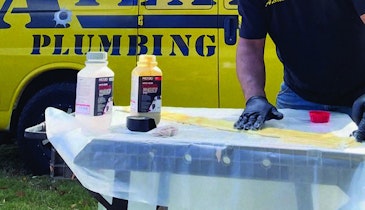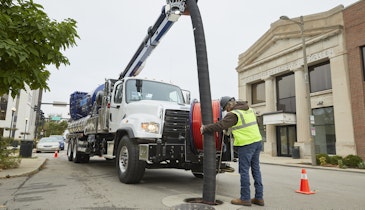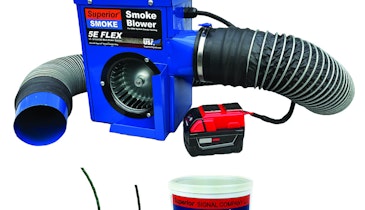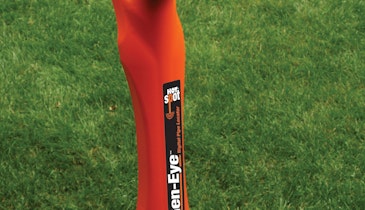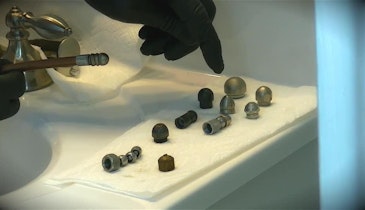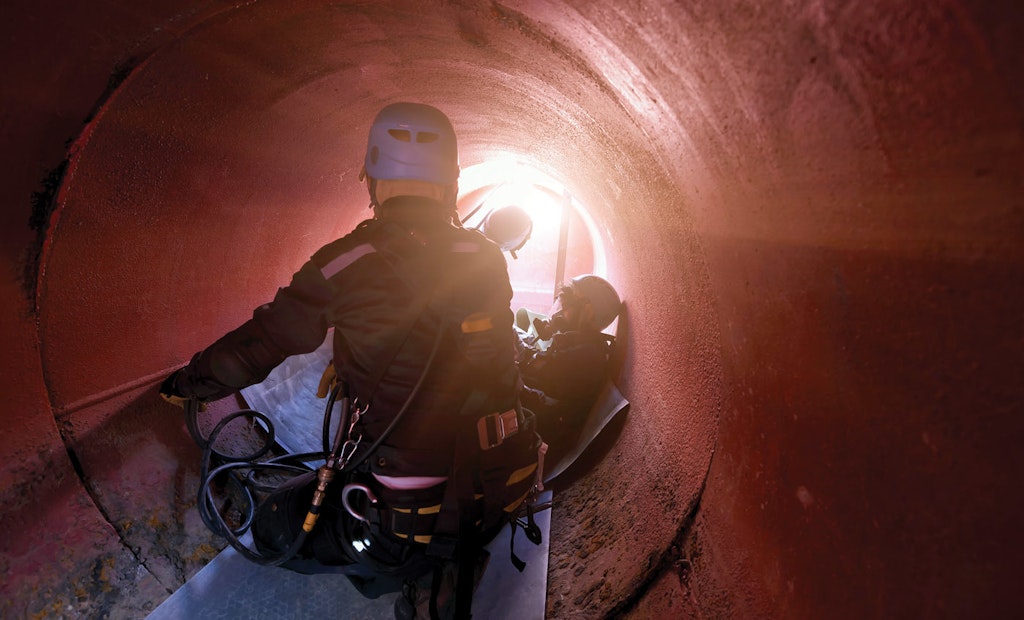
Reliable communication is a must for all workers whenever they are doing any type of confined-space entry work. (Photo courtesy of PK Safety)
Interested in Safety?
Get Safety articles, news and videos right in your inbox! Sign up now.
Safety + Get AlertsSewer cleaning has a number of unique atmospheric hazards, thanks to the lack of natural air movement and an abundance of toxic and combustible gases. In an environment with hazards like these, communication with outside staff members and emergency medical services may mean the difference between life and death.
Good communication is essential at any sewer work site. All messages, instructions, and information relayed between confined-space entrants and outside attendants need to be sent, received, and understood clearly to be effective.
Communication challenges
Confined work sites such as manholes, storage tanks, wet wells, water tanks, pumping stations, and grit and sludge chambers present many communication challenges. The tight spaces in these environments sometimes only allow one worker to fit, which means relying on technology to communicate with co-workers above ground. Ambient noises — such as those from the respiratory protection equipment necessary to minimize a municipal worker’s exposure to toxic gases — can keep workers from recognizing alarms or other warning sounds. Municipal work sites also can interfere with electronic devices, and wet environments can be hard on a lot of communication equipment.
In an emergency, your workers may also be struggling to clearly communicate while experiencing anxiety and labored breathing. Radios are popular communication systems, but their reaches in confined spaces are limited because of electronic interference, battery strength and signal strength, as well as other issues. Cellphones face similar problems, and yelling, banging on a pipe, or tugging on a rope isn’t effective in general, let alone in an emergency.
Con-Space Communications systems
“Underground drain cleaning work is challenging and requires clear communication to maximize efficiency and safety,” says Rick Pedley, PK Safety CEO.
Hard-line communication systems provide a clear, dependable lifeline to the surface and help ensure your confined-space entry teams get the job done and make it out safely.
The General Industry Kit from Con-Space Communications is designed to be simple, but durable, which is great for workers who will get their equipment wet, dropped in mud, and pulled along corners, but who still need them to work. The throat mic straps directly around the throat and takes its sound from the vibration of the speaker’s vocal cords, making the speaker understandable and clear even when wearing a respirator mask. The equipment includes a headset and an alarm button for the entrant.
The CSI-1100 Mini Modular Base unit can handle two workers and run for up to 200 continuous hours on four regular AA batteries, which means no outside power source or wires to worry about getting tangled. The system can be expanded by adding splitters that don’t diminish sound quality, and the attendant’s headset attaches to a mini module power supply that keeps the attendant connected when the entrant needs to relay information about a hazard or accident.
The CSI-2131 Power Talk Box offers hands-free communication for both the entrant and attendant sides of the line, which is crucial in environments where maneuvering requires the use of both hands and where a worker might need to call for help but is unable to press a button. The waterproof unit has a cable sheathed in thermal plastic cable coated to resist many oils, solvents, and chemicals, and it offers a speaker harness that holds the throat mic ear speaker in place. Safety is the priority of any device taken into an enclosed space, but a comfortable fit under a hard hat or other personal protective equipment doesn’t hurt, especially when it encourages your team to wear the devices properly.
Going into a sewer or other permit-required confined space by yourself doesn’t mean you should go alone, and the right communication equipment ensures you’re always in touch with co-workers and in compliance.
